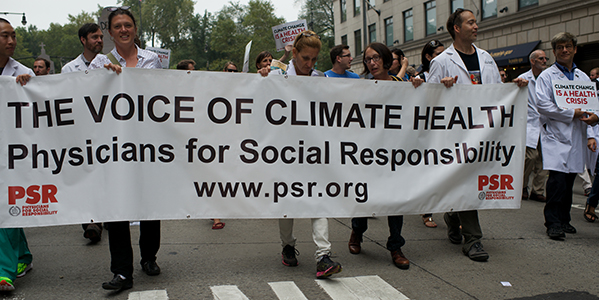In this section, Susan Murcott describes the history of EC.719 D-Lab: Water, Climate Change, and Health, how it was first conceived, and how it has developed over the years.
After having taught for over 20 years, with an emphasis in water, sanitation, and development, I wanted to do something different. I had done my undergraduate and graduate studies here at MIT in environmental engineering, so I had been exposed to the subject of climate change since the 1980s. I’m not a climate scientist, and I wasn’t specifically working in that field, but I felt sufficiently passionate about it as a crucial issue for the 21st century that I wanted to teach a course in climate change, which D-Lab wasn’t offering at the time. I thought that the best way to do that was to co-teach it with someone who was a climate scientist, and specifically to focus on water in climate change.
"Everybody cares about health—their own and that of their family, their neighborhood, their country, and hopefully also the planet."
D-Lab, which has been very open to suggestions for teaching new subjects, welcomed my proposal. For the first two years, the course was called Water and Climate Change. I felt perfectly comfortable in that space, and I also thought it was special, because at that time no one else in the world was teaching a course on water and climate change. (Later, I did find one course at Delft, which is not entirely surprising, because the Netherlands is very progressive, and Delft is known for its emphasis on water. And the Netherlands, generally, is very concerned about water. So now there is one other course on water and climate change in the world, besides the D-Lab course, but there wasn’t one when I first offered it.) I co-teach the course with Julie Simpson, a PhD ecologist in the MIT Sea Grant program, who specializes in carbon sequestration in coastal marine systems, so her area of research includes both water and climate change. It’s a delight to work with her.
The health emphasis came about because I met a young medical doctor who was a Global Health Fellow at Harvard’s School of Public Health, around 2016 or 2017. His passion was climate change and health, and he offered to give guest lectures, and, ultimately, to be yet a third co-teacher for two years. We welcomed his involvement in the class, and we welcomed emphasizing the health aspect of water, climate change, and health, because at that point we were using the 2014 IPCC reports as our text for the course, and those reports are quite technical, dry, and depressing. We wanted the course to emphasize that there’s actually a lot to be hopeful for. Also, there’s so much climate denial in parts of the United States, we wanted to find common ground in what everybody cares about. And everybody cares about health—their own and that of their family, their neighborhood, their country, and hopefully also the planet.
So we thought that looking at water and climate change in terms of human health, animal health, family health, and planetary health, and placing an emphasis on solutions—a quintessentially MIT, problem-solving emphasis—would help to expand the circle of people who embrace the importance of responding to climate change. That was what was motivating us.

Physicians participating in the 2014 NYC People’s Climate Justice March. (Image courtesy of cityprojectca on Flickr. License: CC BY-NC-SA.)










